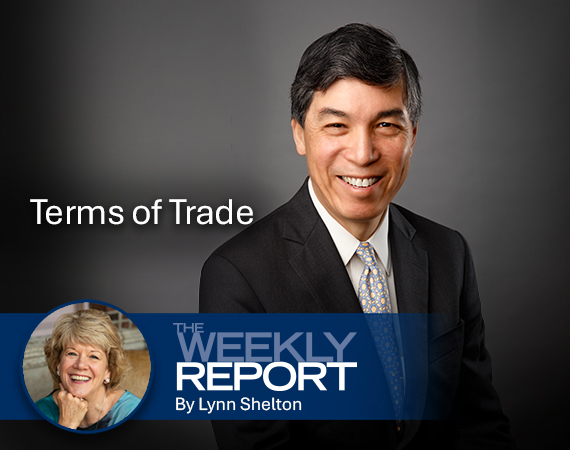
Terms of Trade
The Weekly Report – June 16, 2025.
Harvard Business School Professor Willy Shih talks about trade, tariffs, and how manufacturers can cope with the chaos in the upcoming issue of Enterprise Minnesota® magazine.
As global trade turmoil roiled through the manufacturing world this spring, we once again sought out the wisdom of one of America’s top supply chain experts. Willy Shih, a Harvard business professor of international renown, who also happens to be a longtime friend of Bob Kill, our president and CEO.
Bob reached out to Professor Shih, as he did during the pandemic-era supply chain crisis, for his insight. Because the trade landscape was changing almost daily, the two talked three different times, and major changes from the Trump administration and the courts were still rolling in after their latest conversation.
Still, the lengthy magazine Q&A that evolved is relevant and timely. Shih discusses topics ranging from recent global trade history to examples of unintended consequences of tariff barriers, to valuable tips to help manufacturers thrive in this unpredictable climate.
He gives a big-picture understanding of how today’s current trade environment is radically different from the past several decades. The root of the chaos is that companies have built complex supply chains and value-adding networks assuming there aren’t tariffs and trade barriers. “Now we’re going to put those barriers in. That’s a problem,” Shih says.
It’s a problem because manufacturers might not be able to get the inputs they need for production, and even if they do, costs will almost certainly rise.
To survive and thrive in this new climate Shih urges manufacturers to build strong supply chain relationships, and to relentlessly pursue productivity gains, particularly through automation.
Manufacturers and suppliers should collaborate on scenario planning, Shih says. They can share their expected needs for the coming months and match those with anticipated incoming supplies. To fill gaps, they can shift sources out of China or out of that region. Addressing these immediate needs in cooperation with their suppliers will fortify those relationships for the long term.
Shifting sources from low-cost countries to higher cost countries will necessarily increase expenses. To minimize the impact on cost, manufacturers must boost productivity, particularly with automation, he says.
Manufacturers should automate the least desirable tasks, including heavy lifting and palletizing, he says. They should also upgrade skills across their organizations, focusing on employee talent development and process innovation.
The Q&A offers a perfect combination of background on the trade crisis, anticipated consequences, and concrete actions companies can take to thrive in the new climate. Tom Mason, our longtime magazine editor says the two discussions between Bob and Willy are the best things Enterprise Minnesota magazine has ever published. See for yourself. Look for the full article in the summer issue of Enterprise Minnesota magazine, due to be published in late June.
Industry News
D.C. Memo: Trump tariffs roil Minnesota manufacturers
June 13, MinnPost
Federal cuts for business initiative would put a dent in one of Greater Minnesota’s leading industries
June 12, MinnPost
Stearns County business earns manufacturers association award
June 12, St. Cloud Live
J&E Cos. shuts three Twin Cities factories, laying off 145
June 10, MSN via Minnesota Star Tribune
Cuts to Enterprise Minnesota could disrupt rural manufacturing
June 10, St. Cloud Live
Threats to MEP funding could reshape Minnesota’s rural manufacturing landscape
June 9, Bemidji Pioneer